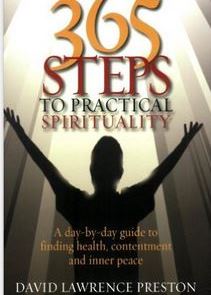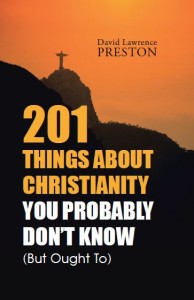In his best-selling book, Further Along the Road Less Travelled, M. Scott Peck pointed out that we are not all at the same place in terms of our spiritual growth. He identified four ‘stages’ of growth. If you had to pick one which most accurately describes you, which would it be?
Stage One
Stage One people have little or no interest in spirituality. They appear to have few moral principles and live chaotic lives. Some, however, rise to positions of power, including some politicians, business leaders, etc.
Stage One people occasionally become painfully aware of their situation. Some rise above it and some self-destruct. Some convert to Stage Two. When this happens, it can be sudden, for example, a dramatic religious conversion.
Have you previously rejected the very idea of spirituality but are now beginning to take an interest? If so, it’s possible that you are ready to move on from Stage One.
Stage Two
State Two people look to authority and are dependent on an organisation for their governance. This could be the military, a business organisation, public institution or religious body. According to Peck, the majority of traditional religious believers fall into this category. They rely on their religion for stability and to deliver them from uncertainty.
Sooner or later some Stage Two people (often the young) question the need for an organisation with rigid structures, rituals and superstitions and begin to move to Stage Three.
Are you a person who likes conformity, respects authority and likes rules? Do you look outside yourself for leadership and control? If so, you’re probably at Stage Two.
Stage Three
These people dislike authority and feel no need to look to an organisation for direction. Some are agnostics or atheists; some are drawn to other philosophies. They are truth seekers without being religious in the usual sense of the word. They are often involved in causes working for peace and justice.
Stage Three people often regard Stage Two people as brainwashed and gullible, while Stage Two people feel threatened by them because of their lack of respect for convention.
As they develop, they begin to glimpse a bigger picture and may even begin to take an interest in some of the mythology that engages their Stage Two associates. At this point, they begin to move towards Stage Four.
Have you turned you back on organised religion yet have a sense that there must be more to life than you’re currently experiencing if only you could find it? If so, you’re probably at Stage Three.
Stage Four
Stage Four individuals believe in the underlying connectedness between all things. They are comfortable with the mystery of life and seek to explore it more deeply. They are inspired by some aspects of the great religions, but not bound to them.
At first sight, Stage Two and Stage Four people appear opposites, yet they have much in common. They may recognise the same passages of scripture, but interpret them differently.
Stage Three people are baffled by Stage Four. On the one hand, they aspire to their awareness and spirituality, while being puzzled about their interest in those old myths and legends.
Peck acknowledged that people do not always fall neatly into categories and that there is some overlap. For instance, Stage Three or Four people may turn to the church at times of celebration or stress, drawing strength and/or comfort from its rituals. They are also to be seen on religious premises when rites of passage take place – what clerics call ‘hatching, matching and dispatching’.
If you have a sense of your own spirituality and the one-ness of all things, you are probably at Stage Four.
If not – let me take you there!
©David Lawrence Preston, 28.12.2017
Follow me on Facebook and Twitter @David_L_Preston
How To Books, 2007.
Balboa Press, 2015



Leave a Reply